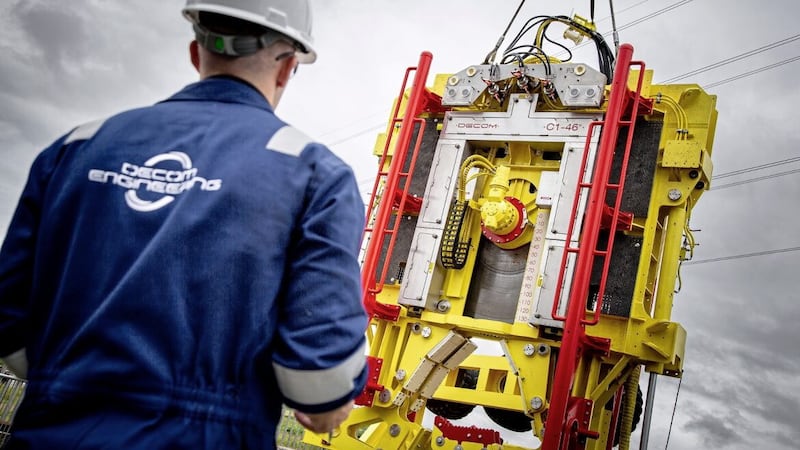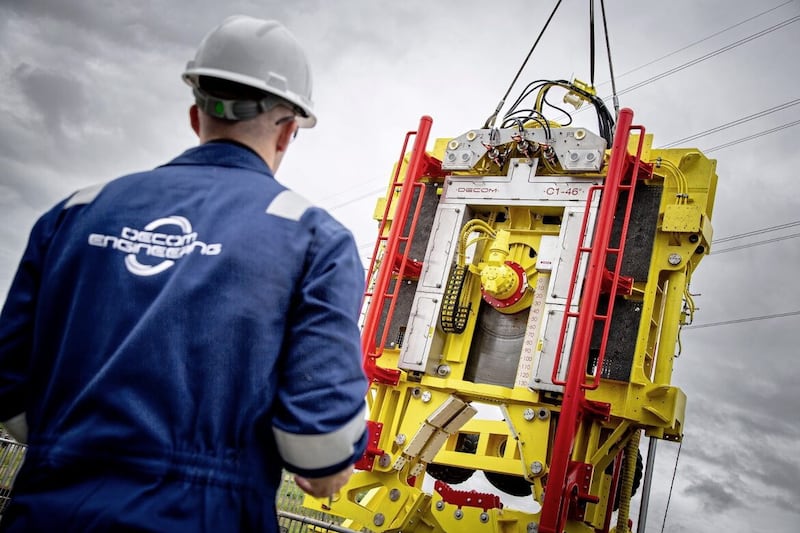COOKSTOWN-based Decom Engineering has invested more than £1 million to develop its largest-ever chop saw, which is currently deployed cutting pipes underwater in the North Sea.
Established up in 2012 by Sean Conway alongside his father and brother, Decom has developed patented sub-sea and offshore cold cutting saws that aid in the decommissioning of old or unused oil and gas pipes.
Its new C1-46 chop saw has been designed to cut tubulars and other materials, and its innovative design means it can be operated in water depths of up to 2,000 metres.
The tool is currently deployed on its first project on behalf of a global energy company in the UK North Sea.
Decom has a growing reputation for providing complex deep water project solutions for the energy sector, and its latest development comes in response to client demand for larger sized sub-sea pipe-cutting capability.
Managing director Sean Conway said: “Our commitment to research and development is a differentiator, and making this significant investment to bring the C1-46 chop saw to market was a result of clients indicating they would welcome larger sized cutting options, as this is an area existing technologies struggle with.
“Decom is focused on supporting clients in solving their problems, and this flagship product is designed for large sub-sea cutting operations and can cut through tough exotic materials and thick coatings with ease.
“Given the strong track record of success with our other models of the C1 chop saw, we're confident this latest version will perform well and will meet client expectations, but we are always looking for ways to improve our offering.”
In recent months, other chop saws in the C1 range from Decom (www.decomengineering.co.uk) have been deployed on a number of complex projects in West Africa, Mauritania, Gulf of Thailand, Norway and the UK Continental Shelf (principally the North Sea).



